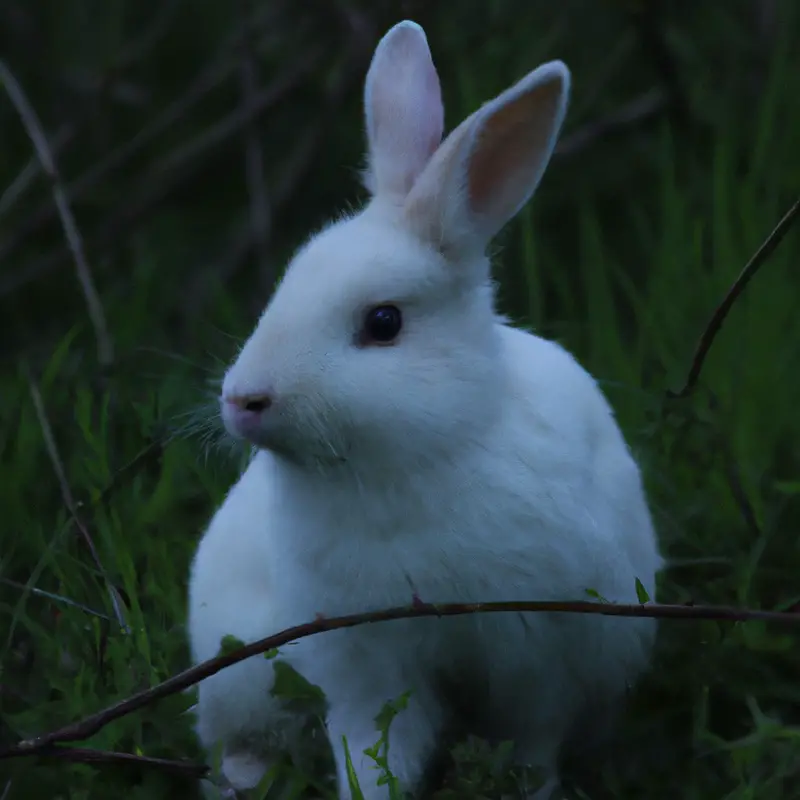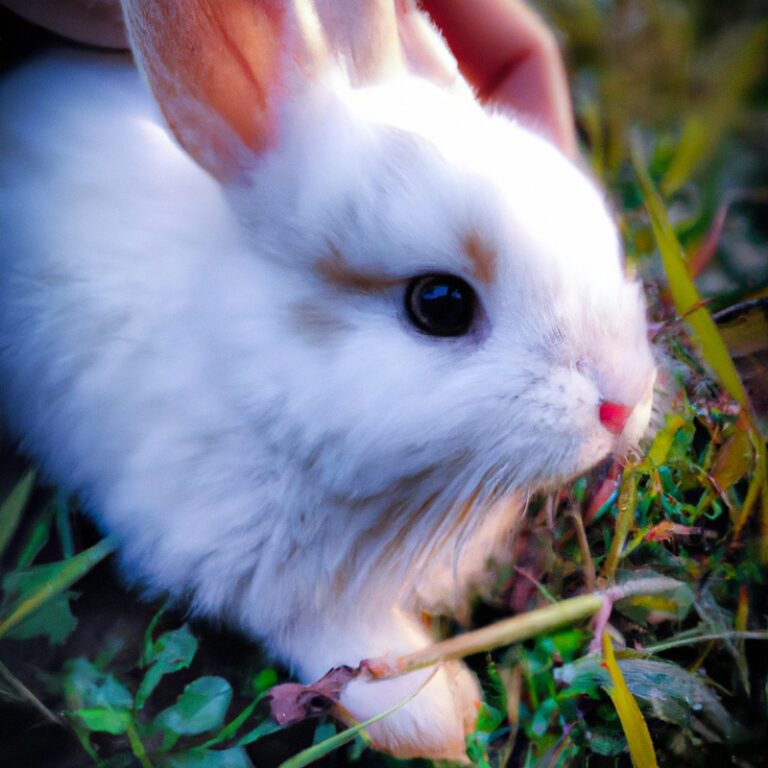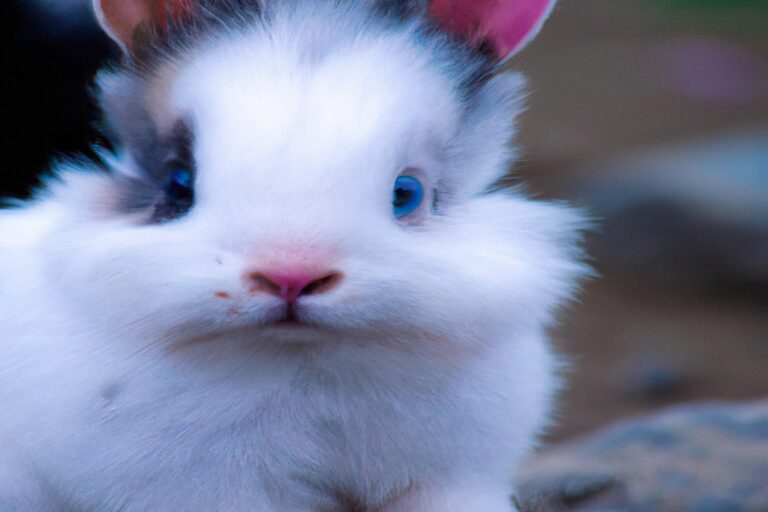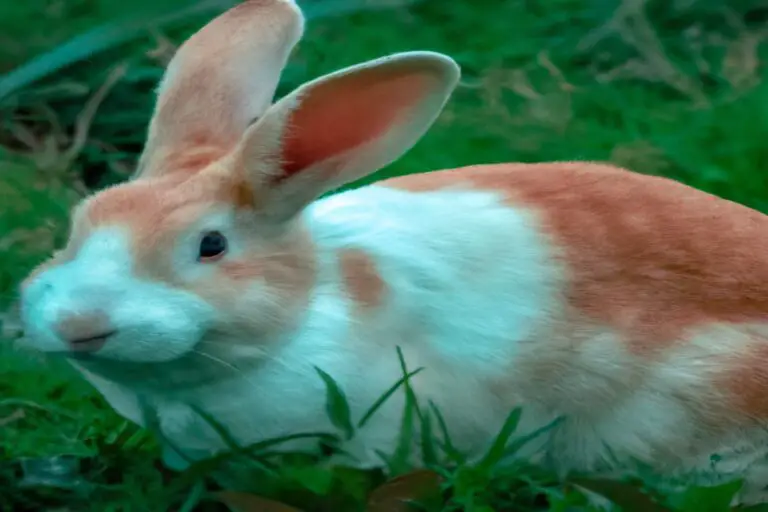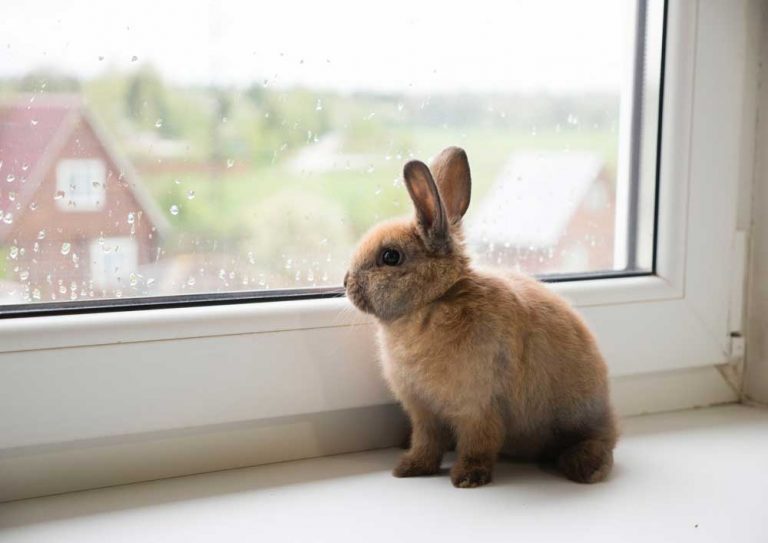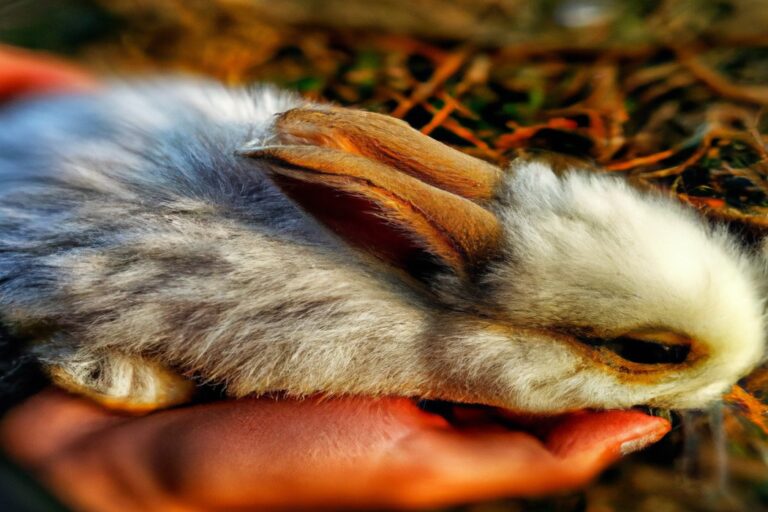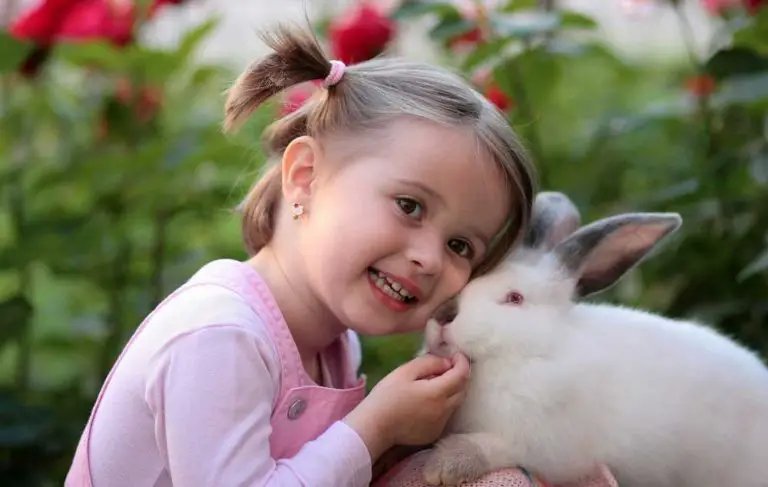How Long Do Lop Rabbits Live? Discover their lifespan!
Key Takeaways:
- Lop rabbits typically live between 7 to 10 years.
- Proper diet, exercise, and veterinary care can help extend a lop rabbit’s lifespan.
- Lop rabbits may have a higher risk of dental and ear problems compared to other breeds.
- Spaying or neutering your lop rabbit can contribute to a longer and healthier life.
Are you curious about the lifespan of lop rabbits? Wondering how long these adorable, floppy-eared critters can live?
Well, you’ve come to the right place! In this article, we’ll dive into the fascinating world of lop rabbits and explore just how long they typically live.
From genetic factors and diet to exercise and healthcare, we’ll uncover the secrets to promoting longevity in these furry companions. Stay tuned for tips on providing a balanced diet, encouraging physical activity, and creating a suitable living environment.
Plus, we’ll address common health issues and answer some frequently asked questions.
Get ready to become an expert on lop rabbits and ensure a long and happy life for your beloved furry friend!
| Type of Rabbit | Average Lifespan |
| Mini Lop | 9-12 years |
| Holland Lop | 7-10 years |
| English Lop | 7-8 years |
| French Lop | 5-7 years |
| Belgian Hare | 8-10 years |
| Continental Giant | 5-7 years |
Lifespan of Lop Rabbits
Lop rabbits typically live for around 7 to 10 years on average.
How long do Lop rabbits typically live?
Lop rabbits typically live between 7 to 10 years.
The lifespan can vary depending on various factors such as genetics, diet, exercise, and overall care.
Providing a well-balanced diet, regular veterinary check-ups, and a comfortable living environment can contribute to a longer and healthier life for your lop rabbit.
Ensuring they receive proper exercise, mental stimulation, and socialization can also promote their well-being.
Remember to be mindful of their unique needs and provide them with love and attention to help them live a happy and fulfilling life.
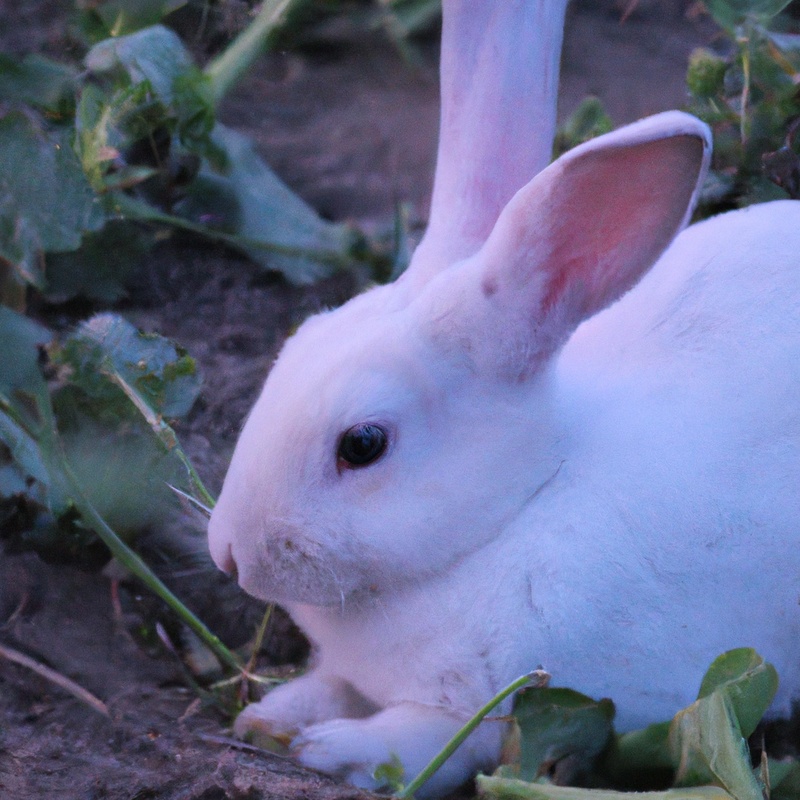
Factors that influence the lifespan of Lop rabbits
Several factors can influence the lifespan of Lop rabbits.
- Genetics: The rabbit’s genetic background plays a significant role in determining its lifespan.
- Diet: A balanced diet with appropriate amounts of hay, fresh vegetables, and pellets is essential for their health and lifespan.
- Exercise: Regular exercise helps maintain a healthy weight and is crucial for the overall well-being of Lop rabbits.
- Veterinary care: Regular check-ups and vaccinations are necessary to detect and prevent any health issues that may affect the rabbit’s lifespan.
- Living conditions: Providing a safe, clean, and spacious environment with shelter and appropriate temperature control is crucial for their overall health and longevity.
Genetics and breed type
When it comes to the lifespan of lop rabbits, genetics and breed type play a significant role.
The average lifespan of a lop rabbit can range from 7 to 12 years, but this can vary depending on their genetic makeup and the specific breed they belong to.
Different breeds have different genetic predispositions and characteristics that can affect their longevity.
It’s important to consider these factors when choosing a lop rabbit as a pet to ensure you’re prepared for their lifespan and any potential health issues that may arise.
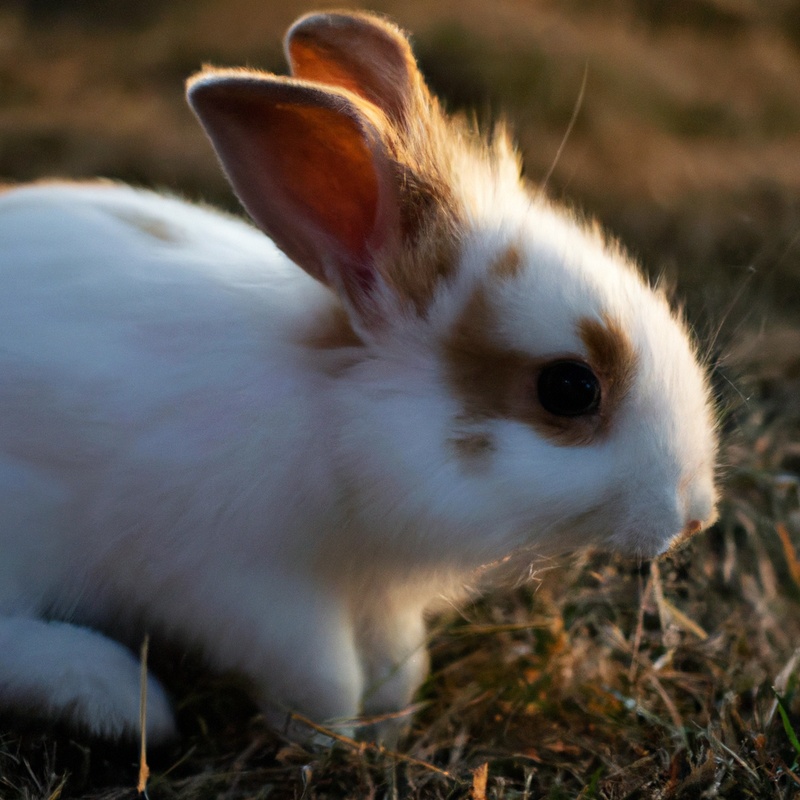
Diet and nutrition
Diet and nutrition are essential for the overall health and well-being of lop rabbits.
Providing a balanced diet is crucial to ensure they receive all the necessary nutrients.
Fresh hay should make up the majority of their diet, along with a variety of fresh vegetables and a small amount of pellets.
Avoid feeding them sugary or high-fat foods, as these can lead to health issues.
Additionally, always provide access to clean, fresh water.
Consulting with a veterinarian can help you create a suitable diet plan for your lop rabbit.
Exercise and physical activity
Exercise and physical activity are essential for the overall well-being and health of lop rabbits.
Regular exercise helps prevent obesity, strengthens muscles, and promotes cardiovascular health.
Encourage your lop rabbit to stay active by providing them with plenty of space to hop and play.
You can also create an obstacle course or introduce interactive toys to keep them engaged and stimulated.
Remember to always supervise their exercise sessions and provide a safe environment to prevent any accidents or injuries.
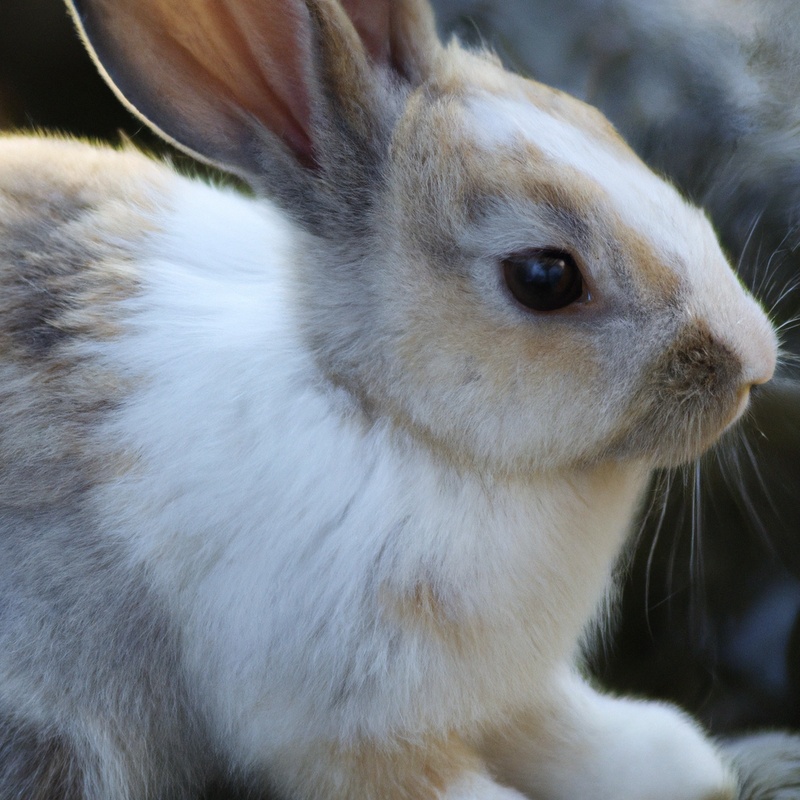
Healthcare and veterinary care
Lop rabbits require regular healthcare and veterinary care to ensure their well-being and longevity.
Here are some important aspects to consider:
- Regular check-ups: It’s essential to schedule routine check-ups with a veterinarian who specializes in small animals. These check-ups help monitor your rabbit’s overall health and identify any potential issues early on.
- Vaccinations: Lop rabbits should receive necessary vaccinations to protect them from common diseases, such as rabbit hemorrhagic disease and myxomatosis. Your veterinarian can advise you on the appropriate vaccine schedule.
- Dental care: Lop rabbits are prone to dental issues due to their unique head shape and teeth alignment. Regular tooth checks and potential dental procedures may be required to prevent dental problems and ensure their ability to eat properly.
- Proper nutrition: A balanced diet is crucial for the health of lop rabbits. It is important to provide them with fresh, high-quality hay, fresh vegetables, and a controlled amount of pellets. Avoid feeding them foods that are harmful to their digestive system, such as sugary treats or foods high in starch.
- Parasite prevention: Regularly check and treat your lop rabbit for external and internal parasites, such as fleas, mites, worms, and ticks. Your veterinarian can recommend appropriate preventive measures.
- Safe environment: Lop rabbits should be kept in a clean and safe environment. Regularly clean their cages or living spaces and provide them with plenty of fresh water and a safe area to exercise.
Remember, ensuring the healthcare and veterinary care needs of your lop rabbit are met is vital for their overall health and quality of life.
Always consult with a qualified veterinarian for personalized care and advice.
Environmental factors
Environmental factors play a significant role in the lifespan of lop rabbits.
Here are some key factors that can impact their longevity:
- Diet: Providing a balanced diet is essential for the overall health of lop rabbits. A diet rich in fresh hay, vegetables, and a limited amount of pelleted food can support their well-being and potentially extend their lifespan.
- Housing: Creating a safe and comfortable living environment for lop rabbits is crucial. Ensure they have ample space to move around, with a clean area for rest. Protect them from extreme temperatures and potential predators.
- Exercise: Regular physical activity is important for lop rabbits to maintain a healthy weight and prevent obesity-related health issues. Providing them with opportunities for exercise, such as supervised playtime or access to a larger enclosure, can contribute to their longevity.
- Socialization: Lop rabbits thrive on social interaction. They should be given the opportunity to interact with other rabbits or humans regularly. This social stimulation can enhance their mental well-being and potentially extend their lifespan.
- Veterinary Care: Regular trips to a knowledgeable rabbit veterinarian are essential. They can provide preventative care, monitor any health concerns, and offer advice on health maintenance. Seeking prompt veterinary attention when needed can greatly impact a lop rabbit’s overall health and lifespan.
By attentively managing these environmental factors, you can help ensure a long and healthy life for your cherished lop rabbit companion.
Promoting Longevity in Lop Rabbits
To promote longevity in lop rabbits, focus on providing a balanced and nutritious diet and ensuring regular exercise and mental stimulation.
Providing a balanced and nutritious diet
A balanced and nutritious diet is essential for the health and longevity of lop rabbits.
To ensure their well-being, provide them with a combination of hay, fresh vegetables, and a small amount of pellets.
Offer a variety of vegetables such as leafy greens, carrots, and bell peppers, while avoiding toxic ones like onions and garlic.
Remember to provide fresh water at all times and monitor their food intake to prevent obesity.
A healthy diet will support the overall well-being of your lop rabbit.
Importance of hay
Hay is essential for the health and well-being of lop rabbits. It provides them with necessary fiber, which aids in digestion and prevents gastrointestinal problems.
Hay also helps wear down their teeth, which continuously grow, preventing dental issues.
Additionally, hay keeps them mentally stimulated, as they enjoy foraging and exploring the strands. Make sure to offer a variety of hay types, such as timothy or orchard grass, to provide different textures and flavors.
Hay should always be available to your lop rabbit to support their overall health.
Appropriate vegetables and fruits
Appropriate vegetables and fruits for your lop rabbit’s diet include fresh leafy greens like romaine lettuce, spinach, and kale.
You can also offer them small amounts of carrots, broccoli, and bell peppers.
However, make sure to introduce new foods gradually to avoid digestive upsets.
Avoid giving them foods high in sugar or starch, such as bananas or potatoes.
Always ensure fresh water is available for your furry friend.
Pellets and supplements
Pellets and supplements are essential for the health and longevity of lop rabbits. They provide the necessary nutrients that may be lacking in their daily diet.
High-quality pellets should be the main component of their diet, with hay and fresh vegetables serving as supplements.
Avoid overfeeding and ensure the pellets are specifically formulated for rabbits. As for supplements, consult with a veterinarian to determine which ones are suitable for your bunny’s needs.
Always provide fresh water and monitor their overall health.
Regular exercise and mental stimulation
Regular exercise and mental stimulation play a vital role in promoting the longevity of lop rabbits. Providing your furry friend with plenty of opportunities for physical activity, such as daily playtime and opportunities to hop around, helps maintain their overall health and prevents weight gain.
Additionally, incorporating mental stimulation through puzzle toys, hiding treats, and social interactions keeps their minds engaged and prevents boredom.
Remember, a happy and healthy lop rabbit is a long-living one!
Encouraging physical activity
To encourage physical activity in lop rabbits, try introducing interactive toys, such as tunnels and balls, in their living space. This will stimulate their curiosity and promote movement.
Additionally, provide ample space for them to hop and play freely.
Regular supervised outdoor time can also be beneficial for their overall fitness. Offer a varied diet to keep them active while foraging for food.
Lastly, spend time engaging with your rabbit through play and gentle exercise to encourage their active behavior.
Providing toys and enrichment
Toys and enrichment play a vital role in promoting the well-being and longevity of lop rabbits. Providing them with stimulating toys, such as chew toys and puzzle feeders, helps keep their minds active and prevents boredom.
Enrichment activities, like hiding treats or introducing new textures and scents, also engage their senses and keep them mentally stimulated.
It’s important to rotate toys and provide variety to keep your rabbit entertained and happy. Just remember to choose toys that are safe and specifically designed for rabbits.
Regular veterinary check-ups and healthcare
Regular veterinary check-ups and healthcare are essential for ensuring the long and healthy life of your lop rabbit. By scheduling regular visits to the vet, you can catch any potential health issues early on and provide prompt treatment.
A veterinarian will also be able to provide guidance on proper nutrition, exercise, and overall wellness for your furry friend.
Additionally, vaccinations and preventive measures like parasite control are important to keep your lop rabbit happy and thriving. Taking these steps will help you maintain your rabbit’s health and promote their longevity.
Vaccinations and preventive care
Vaccinations and preventive care are essential for the health and longevity of your lop rabbit.
Regular vaccinations protect against common diseases like rabbit hemorrhagic disease and myxomatosis.
Additionally, preventive care includes keeping your rabbit’s living area clean, providing a balanced diet, and regular exercise.
Regular check-ups with a veterinarian and maintaining a suitable environment are also crucial.
By prioritizing vaccinations and preventive care, you can ensure your lop rabbit stays healthy and happy for years to come.
Dental care
Taking care of your lop rabbit’s dental health is important to ensure a long and healthy life. Here are some tips for dental care:
- Provide a diet high in fiber, such as hay and fresh greens, to help wear down their teeth naturally.
- Avoid feeding too many sugary or starchy treats, as these can contribute to dental problems.
- Monitor your rabbit’s eating habits and look out for signs of dental issues, such as reduced appetite, drooling, or difficulty eating.
- Schedule regular check-ups with a veterinarian who is experienced in rabbit care to catch any dental problems early.
- Consider providing safe chew toys to promote dental wear and help prevent overgrowth of the teeth.
Parasite control
Parasite control is crucial for the overall health and well-being of lop rabbits. Regularly checking and treating for parasites is important to prevent infestations and related health issues.
Here are a few tips to effectively control parasites in lop rabbits:
- Regularly groom your rabbit: Brushing your rabbit’s fur helps to remove any potential parasites or eggs.
- Clean and maintain the living area: Regularly clean the rabbit’s enclosure to minimize the chances of parasites infesting the environment.
- Use preventive treatments: Discuss with your veterinarian about suitable preventive treatments such as flea and tick control products specifically formulated for rabbits.
- Consult your veterinarian: If you suspect your rabbit has parasites or notice any signs of infestation, seek veterinary advice for appropriate treatment options.
Remember, maintaining a clean and parasite-free environment is essential for promoting the longevity and well-being of your lop rabbit.
Creating a suitable living environment
Creating a suitable living environment for your lop rabbit is essential for its wellbeing and longevity.
Here are some key points to consider:
- Provide a spacious and secure enclosure with plenty of room for your rabbit to hop, run, and explore.
- Use a litter tray filled with rabbit-safe bedding material to keep the living area clean and hygienic.
- Set up hiding places and tunnels for your rabbit to retreat to, as they enjoy having a sense of security.
- Ensure proper ventilation and regulate the temperature to keep your rabbit comfortable.
- Offer a balanced and nutritious diet, with a variety of fresh hay, vegetables, and pellets.
- Provide daily exercise opportunities, both indoors and outdoors, if possible.
- Regularly check for any signs of illness or discomfort, and seek veterinary care if needed.
- Offer mental stimulation through toys, tunnels, and interactive play.
Creating a suitable living environment will contribute to the overall health and happiness of your lop rabbit.
Providing a safe and spacious habitat
To provide a safe and spacious habitat for your lop rabbit, it’s important to prioritize their well-being.
Make sure their living space is free of any hazards such as wires or toxic plants.
Provide a spacious enclosure where they can hop around and explore.
Offer hiding places, toys, and tunnels to keep them mentally stimulated.
Regularly clean their habitat to maintain cleanliness.
Ensure proper ventilation and temperature control.
Lastly, give them enough exercise and playtime outside their enclosure for a happy and healthy lop.
Temperature and lighting considerations
Temperature and lighting are important considerations for the wellbeing of lop rabbits. Maintaining a comfortable temperature between 60°F and 70°F is ideal, as extreme hot or cold temperatures can be harmful to rabbits.
Proper lighting is also crucial to mimic natural daylight and ensure a healthy circadian rhythm.
Aim for 12 to 16 hours of light each day, and provide a shady area for rabbits to escape from direct sunlight. Regularly monitor and adjust temperature and lighting conditions to promote the longevity and overall health of your lop rabbits.
Cleanliness and hygiene
Taking care of cleanliness and hygiene is essential for the well-being of your lop rabbit.
Regularly clean their living area to prevent the build-up of dirt, waste, and bacteria.
Provide fresh bedding and clean their food and water bowls daily.
Grooming is also important; brush their fur to prevent matting and trim their nails to avoid discomfort.
Keeping a clean and hygienic environment will help your lop rabbit live a happy and healthy life.
Monitoring and managing stress levels
Monitoring and managing stress levels in lop rabbits is important for their overall well-being. One way to do this is by creating a calm and quiet environment for them.
Avoid loud noises, sudden movements, and crowded spaces.
Another effective method is to provide plenty of hiding spots and enrichment activities to keep their minds stimulated. Regular check-ups with a veterinarian can help identify any signs of stress and address them promptly.
Additionally, ensuring a balanced diet and plenty of fresh water can also contribute to reducing stress levels in lop rabbits.
Providing a calm and quiet environment
To provide a calm and quiet environment for your lop rabbit, create a designated space for them that is away from loud noises and high traffic areas.
Avoid placing their enclosure near TVs, speakers, or busy hallways.
Provide them with a cozy hiding spot, like a covered box or tunnel, where they can retreat when they need quiet time.
Consider using white noise machines or calming music to help mask any sudden noises.
Remember to speak softly around your rabbit and avoid sudden movements to maintain a peaceful atmosphere.
Minimizing exposure to loud noises or excessive handling
Minimizing exposure to loud noises and excessive handling is important for the wellbeing of lop rabbits. Loud noises can startle and stress them, while excessive handling can lead to anxiety and injuries.
To prevent this, create a calm and quiet environment for your rabbit.
Avoid loud music, shouting, or sudden loud noises. When handling your rabbit, do so gently and with caution to prevent any undue stress or harm.
Providing a safe and quiet space for your lop rabbit will contribute to their overall happiness and longevity.
Common Health Issues and Care Tips for Lop Rabbits
Common health issues for lop rabbits and how to care for them.
Dental problems
Dental problems can be a common issue for lop rabbits.
If their teeth grow too long, it can lead to malocclusion or overgrowth, causing pain and difficulty eating.
It’s important to monitor your rabbit’s dental health and provide them with a proper diet to prevent these issues.
Regular dental check-ups by a veterinarian experienced with rabbits are crucial for early detection and treatment.
Feeding your rabbit plenty of hay and avoiding a diet high in sugary treats can also help keep their teeth healthy.
Signs of dental issues
Signs of dental issues in lop rabbits can include:
- Reduced appetite or difficulty eating: If you notice your rabbit is eating less or struggling to chew, it could be a sign of dental problems.
- Weight loss: Dental issues can cause weight loss in rabbits, as they may not be able to eat properly.
- Excessive drooling: Excessive drooling can indicate pain or discomfort in the mouth, which could be related to dental issues.
- Bad breath: If your rabbit has persistent bad breath, it may be a sign of dental problems or an underlying infection.
- Tooth grinding or teeth chattering: Rabbits often grind their teeth when they are in pain, so if you hear unusual noises while they eat or groom, it could indicate dental issues.
Regular dental check-ups with a veterinarian and providing plenty of hay and chew toys can help prevent and detect dental problems in lop rabbits.
Dental care tips
Proper dental care is essential for the overall health and well-being of your lop rabbit.
Here are some tips to keep their teeth in good condition:
- Provide plenty of roughage: Feeding your rabbit a diet rich in hay will help wear down their teeth naturally and prevent overgrowth. Make sure fresh hay is available at all times.
- Offer appropriate chew toys: Rabbits love to chew, so providing them with safe toys made of natural materials, like untreated wood or woven grass, can help keep their teeth healthy. Avoid plastic toys that could be harmful if ingested.
- Schedule regular check-ups: Take your lop rabbit for regular vet visits to have their teeth checked and trimmed if necessary. A professional can help identify potential dental issues early on and suggest appropriate treatment.
Gastrointestinal issues
Gastrointestinal issues are common health problems in lop rabbits.
These issues can include diarrhea, bloating, and gas.
To prevent and manage gastrointestinal issues, make sure to provide a balanced diet with plenty of hay and fresh water.
Avoid sudden changes in their diet and regularly clean their living area to prevent the build-up of bacteria.
If you notice any signs of gastrointestinal issues, such as loss of appetite or abnormal stools, consult a veterinarian for proper diagnosis and treatment.
Common causes and symptoms
Common causes of health issues in lop rabbits can be related to their diet, environment, and genetics. Some common symptoms to watch out for include changes in appetite, diarrhea, difficulty breathing, and excessive grooming.
It is important to provide a balanced diet, ensure a clean and stress-free living environment, and choose a reputable breeder or rescue organization when getting a lop rabbit.
Regular check-ups with a knowledgeable veterinarian are also crucial to catch any potential health issues early on.
Preventive measures and treatments
Preventive measures are essential to keep your lop rabbit healthy.
Regular veterinary check-ups, proper nutrition, and a clean living environment are key.
Additionally, vaccinations can protect against common diseases.
In terms of treatments, if your rabbit shows signs of illness, seek veterinary care promptly.
Common health issues can include dental problems, respiratory infections, and gastrointestinal disturbances.
Your veterinarian will recommend specific treatments tailored to your rabbit’s needs.
Remember to always observe your rabbit closely and address any health concerns promptly.
Obesity and weight management
Obesity can be a common health issue for lop rabbits if they are not given a balanced diet and enough exercise.
Proper weight management is essential for their overall well-being.
To manage their weight, make sure to provide them with a healthy diet consisting of hay, fresh vegetables, and a limited amount of pellets.
Avoid feeding them high-calorie treats and monitor their portion sizes.
Regular exercise, such as supervised playtime, can also help them maintain a healthy weight.
Signs of obesity
Obesity is a common health issue in lop rabbits, and it’s important to be aware of the signs.
Here are some indicators that your rabbit may be overweight:
- Difficulty in movement or reduced mobility
- Excessive fat around the neck, back, or abdomen
- Difficulty in grooming themselves
- Change in behavior or reduced activity levels
- Reluctance to exercise or play
If you notice these signs, it’s crucial to consult with a veterinarian.
They can provide guidance on a proper diet and exercise plan to help your rabbit achieve a healthy weight and prevent further health complications.
Ear infections
Ear infections are a common health issue in lop rabbits. Symptoms include head tilting, loss of balance, and disorientation.
To prevent ear infections, regularly check your rabbit’s ears for signs of redness, swelling, or discharge.
Keep their living area clean and dry to reduce the risk of bacterial or fungal growth. If you notice any symptoms, it’s important to take your rabbit to a veterinarian for proper diagnosis and treatment.
Ear infections can be painful and potentially lead to more serious complications if left untreated.
So, be attentive to your rabbit’s ear health and seek professional help when needed.
Symptoms and causes
Symptoms and causes: Lop rabbits may experience a range of symptoms that can indicate underlying health issues.
These include loss of appetite, changes in behavior or activity levels, diarrhea, difficulty breathing, and discharge from the eyes or nose.
Understanding the causes of these symptoms is important for proper care.
Some common causes include dental problems, respiratory infections, gastrointestinal issues, and obesity.
Regular veterinary check-ups and a healthy diet can help prevent and address these issues.
Treatment and prevention strategies
To ensure the health and well-being of your lop rabbit, there are certain treatment and prevention strategies you can follow. Regular veterinary check-ups are essential for early detection of any health issues.
Provide a balanced diet with fresh hay, vegetables, and limited commercial pellets.
Keep their living environment clean and spacious to prevent any respiratory problems. Regular exercise and mental stimulation are also important for their overall well-being.
Lastly, make sure to handle your lop rabbit gently and provide them with plenty of love and affection.
Parasites and external pests
Parasites and external pests can be a common issue for lop rabbits. It’s important to regularly check your rabbit for fleas, ticks, mites, and lice.
These pests can cause discomfort and even lead to infections or diseases.
To prevent and treat parasites, it’s best to consult with a veterinarian and follow their recommended treatment plan. Additionally, keeping your rabbit’s living area clean and properly grooming them can help minimize the risk of infestations.
Always be vigilant in maintaining your rabbit’s health and well-being.
Identification and prevention
Identification and prevention of health issues in lop rabbits is essential for their overall wellbeing.
To identify potential problems, closely observe their behavior, appetite, and body condition.
Regularly check their eyes, ears, teeth, and fur for any abnormalities.
To prevent health issues, provide a proper diet with high-quality hay, fresh vegetables, and limited pellet intake.
Maintain a clean and spacious living environment, keep their nails trimmed, and provide regular exercise.
Regular veterinary check-ups are also important to catch any potential issues early on.
Treatment options
When it comes to the treatment options for lop rabbits, there are a few key considerations. One important aspect is to ensure proper nutrition by providing a balanced diet that includes hay, fresh vegetables, and a small amount of pellets.
Regular grooming is also crucial for preventing matting and hairballs.
Additionally, it’s important to provide a safe and comfortable living environment, with plenty of space to hop around and appropriate bedding material. If your lop rabbit shows signs of illness or injury, it’s essential to seek veterinary care promptly.
Behavioral concerns and socialization
Behavioral concerns and socialization are important aspects of caring for lop rabbits. Lops can be prone to shyness and fearfulness, so it’s crucial to provide a calm and secure environment for them.
They thrive on social interaction and will benefit from daily handling and gentle human interaction.
Building trust and establishing a routine can help alleviate any behavioral concerns. It’s also important to ensure that they have enough mental and physical stimulation, such as toys and playtime, to prevent boredom and destructive behaviors like chewing.
Common behavioral problems
Lop rabbits are generally gentle and well-behaved pets, but they can sometimes exhibit behavioral problems. Here are some common issues you might encounter:
- Chewing: Lop rabbits have a natural tendency to chew on things. To prevent damage to furniture and cords, provide them with plenty of rabbit-safe toys and chew sticks.
- Digging: Lop rabbits love to dig, which can be problematic if they start digging up your carpet or plants. Consider providing a designated digging area with soft bedding for them to satisfy this instinct.
- Aggression: Some lop rabbits may display aggression towards other pets or humans. Proper socialization, training, and neutering can help minimize aggressive behaviors.
- Fearfulness: Lop rabbits can be easily startled or stressed, causing them to become fearful. Creating a calm and secure environment for them with hiding spots and quiet areas can help alleviate their anxiety.
- Not using the litter box: Lop rabbits can be litter trained, but they may occasionally have accidents. Ensure that the litter box is easily accessible and provide positive reinforcement when they use it correctly.
Remember, every rabbit is unique, and their behaviors may vary. If you’re facing any severe or persistent behavioral problems, it’s best to consult with a veterinarian or a rabbit behavior specialist for tailored advice.
Training and socialization tips
Training and socialization are important for lop rabbits to thrive.
Here are some tips:
- Start early: Begin training and socializing your lop rabbit when they are young to establish good habits.
- Handle gently: Get your rabbit used to being handled by gently picking them up and petting them often.
- Use positive reinforcement: Reward good behavior with treats and praise to encourage your rabbit to repeat the behavior.
- Introduce new experiences gradually: Expose your rabbit to new sights, sounds, and people slowly, to avoid overwhelming them.
- Provide plenty of toys and stimulation: Keep your rabbit entertained and mentally stimulated with toys, tunnels, and safe chewing options.
Remember, patience and consistency are key when training and socializing your lop rabbit.
With time and effort, you can create a happy and well-adjusted companion.
Neutering and spaying
Neutering and spaying your lop rabbit is an important decision.
It helps prevent health problems and unwanted litters.
By neutering males or spaying females, you can reduce aggression, urinary issues, and certain cancers.
It’s best to consult with a veterinarian to determine the optimal age for this procedure.
After the surgery, provide a safe and comfortable recovery environment, monitor for any complications, and follow the vet’s instructions for post-operative care.
Neutering and spaying can greatly improve your rabbit’s overall health and well-being.
Frequently Asked Questions (FAQs)
How can I determine the age of my Lop rabbit?
Determining the age of a Lop rabbit can be challenging, but there are a few key indicators you can look for.
Here’s how you can determine the age of your Lop rabbit:
- Teeth: Check their teeth and look for signs of wear. Young rabbits will have sharp and white incisors, while older rabbits may have slightly worn and yellowed teeth.
- Size and Growth: Consider the overall size and growth of your rabbit. Younger rabbits tend to be smaller and have a more compact body shape, while older rabbits will be larger and more fully grown.
- Fur: Examine the fur of your Lop rabbit. Young rabbits typically have softer and fluffier fur, while older rabbits may have a coarser and more matted coat.
- Behavior: Pay attention to your rabbit’s behavior. Young rabbits are often more energetic and playful, while older rabbits may display more calm and reserved behavior.
Remember that these indicators are not foolproof and may vary depending on individual rabbits.
It’s always best to consult with a veterinarian for a more accurate assessment of your Lop rabbit’s age.
Can Lop rabbits live with other pets?
Lop rabbits can generally live harmoniously with other pets, such as cats and dogs, as long as proper introductions and supervision are in place. It’s important to ensure the safety of both the rabbit and the other pets by gradually introducing them and monitoring their interactions closely.
Some other small animals like guinea pigs or hamsters may also be compatible with lop rabbits, but cautious supervision is still necessary.
Always prioritize the well-being and happiness of all your pets when considering adding a lop rabbit to your household.
Do Lop rabbits require grooming?
Lop rabbits, like any other rabbit breed, do require grooming. Their long and fluffy coats can easily get tangled and matted if not properly maintained.
Grooming helps prevent hairballs and keeps their fur clean and healthy.
Regular brushing and checking for any signs of matting or skin issues is essential. Additionally, lop rabbits may need their nails trimmed regularly to prevent overgrowth and discomfort.
Grooming sessions also provide an opportunity to bond with your bunny.
Are Lop rabbits prone to certain diseases?
Lop rabbits are prone to certain diseases that all rabbit breeds can be susceptible to. Some common health issues that can affect lop rabbits include dental problems, such as malocclusion, where their teeth don’t align properly.
Eye infections, ear infections, and respiratory issues are also concerns.
Additionally, lop rabbits can be more prone to obesity, so it’s important to provide them with a balanced diet and plenty of exercise. Regular veterinary check-ups and a good quality of care can help prevent and manage these health issues.
Can Lop rabbits be litter trained?
Yes, Lop rabbits can be litter trained! With a little patience and consistency, you can teach your Lop rabbit to use a litter tray. Start by placing a litter box filled with rabbit-safe, absorbent litter in their enclosure.
When you notice your rabbit using a specific corner as a bathroom spot, move the litter box there.
Reinforce good behavior by offering treats and praise whenever they use the litter box. Accidents may happen, so be prepared to clean up any messes and continue training.
With time, your Lop rabbit will learn to use the litter box consistently.
Final Verdict
The lifespan of Lop rabbits can vary depending on several factors such as genetics, diet, exercise, healthcare, and environmental conditions. While some Lop rabbits may live for 7-10 years or more, others may have a shorter lifespan.
To promote longevity in Lop rabbits, it is important to provide a balanced and nutritious diet, ensure regular exercise and mental stimulation, schedule regular veterinary check-ups, create a suitable living environment, and manage stress levels.
By following these guidelines and addressing common health issues, you can help your Lop rabbit live a happy and healthy life.

